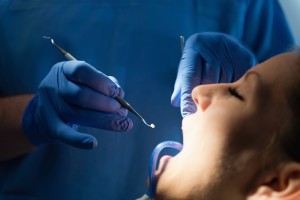 The data makes it clear. Attention-Deficit/Hyperactivity Disorder (ADHD) is a condition experienced by a critical mass of folks—up to 11% in U.S. children and roughly 3% of adults worldwide. Meanwhile, up to 7% of men and 5% of women have sleep apnea. But do they overlap?
The data makes it clear. Attention-Deficit/Hyperactivity Disorder (ADHD) is a condition experienced by a critical mass of folks—up to 11% in U.S. children and roughly 3% of adults worldwide. Meanwhile, up to 7% of men and 5% of women have sleep apnea. But do they overlap?
Yes. Estimates range from 25% to 50% of people with ADHD report sleep and breathing disorders (SBD). That’s not a big surprise with things like insomnia or nightmares, but the data shows people with ADHD suffer other conditions like snoring and sleep apnea. Specifically, up to one-third of patients with ADHD have snoring issues or full-on sleep apnea.
Symptoms & Causes Overview
ADHD is a disorder that typically begins in childhood, but it can sustain into adulthood and even onset there. Its symptoms are:
- Inattention—Not necessarily a lack of attention, but attention to too many things at once (hyperfocus).
- Hyperactivity—Inability to regulate the appropriate/productive level or amount of action
- Impulsivity—Inability to regulate appropriate decision-making processes
According to the CDC, the cause(s) and risk factors for ADHD are unknown, but the latest research shows that genetics plays an important role.
Sleep apnea is not merely “extreme snoring.” People with sleep apnea have brief episodes wherein their breathing actually stops, and they don’t know it (because they’re sleeping). Episodes typically happen multiple times per night and the condition can lead to a number of other conditions, including but not limited to:
- High blood pressure and heart disease
- Diabetes (Type 2)
- Acid reflux
- Depression
The cause of sleep apnea is obstruction of the airway. The obstruction can be a structural issue, like misalignment of the jaw, enlarged tonsils and/or adenoids. It can also be a soft tissue issue often related to obesity and being overweight.
The ADHD SBD Link
“Correlation is not causation” is a mantra of scientific research, but when you consider what that means in terms of gross numbers, it’s the duty of scientific research to figure out whatever connection there is.
Sleep apnea has been linked to elevated rates of ADHD-like issues in children. In a study published by the medical journal Sleep that assessed 263 children 6 to 11 years of age. The study revealed that 23 kids had sleep apnea develop during the study and 21 kids had sleep apnea for the entire length of the study. Incidentally, 41 children who started the study with sleep apnea saw their symptoms stop when examined at the five-year follow-up.
So, what’s happening? Who knows. But according to a study in the European College of Neuropsychopharmacology, some scientists propose a new theory: ADHD may in fact be a problem associated with lack of regular circadian sleep. In other words, ADHD causes sleeplessness—at least in a significant number of cases—and not the other way around. That has a lot of implications for treating ADHD, namely using non-pharmacological methods like changing light or sleep patterns. But the other implication is that if sleep apnea causes sleeplessness and sleeplessness causes ADHD, dentists like the ones here at Dentalux might find themselves in the ADHD treatment business if not already.
Treatment
Sleep apnea in children is treatable, especially when the cause is enlarged tonsils and adenoids. In those instances, surgery is the treatment of choice for kids. But in adults with sleep apnea, it’s common the obstruction is caused by a structural issue of the jaw or mouth. Rather than sending patients to a sleep study that sets them up with a CPAP (continuous positive airway pressure) device later, dentists can offer the DNA (Daytime Nighttime Appliance) and mRNA (Mandibular Repositioning-Nighttime Appliance) systems of Vivos.
Vivos’ DNA system opens your airway by repositioning the structures of your mouth and jaw to prevent airway obstruction. For instance, moving your lower jaw forward into a position that does not cause obstruction and snoring. Vivos’ mRNA system focuses on your lower jaw. Specifically, it shifts your lower jaw forward by lifting any extra tissue that’s obstructing your airway.
Whatever the cause of your sleep apnea or ADHD, the cure starts with regular and proper dental care. We hope to see you in the office soon.







Leave a Reply